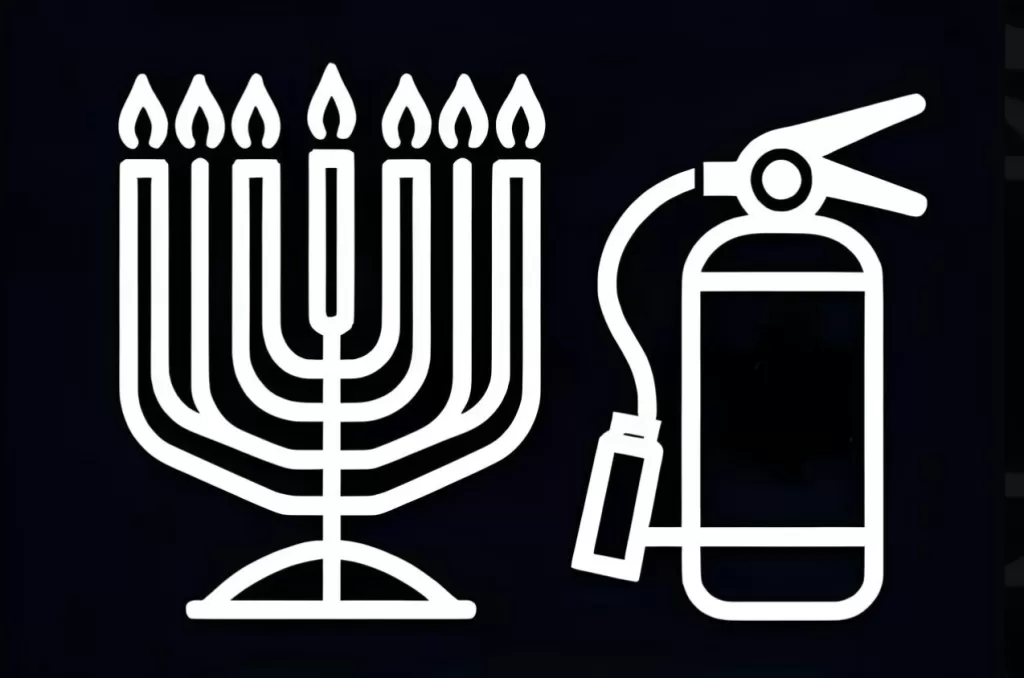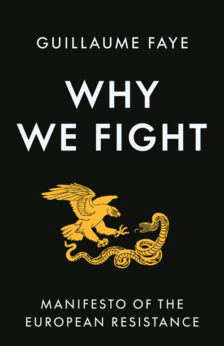Europe’s Firefighter?
A man takes a fire extinguisher in hand, bravely steps forward towards a seven-branched candelabrum, and presses the nozzle. Foam sprays out, extinguishing the candles. Within moments, the area is engulfed in smoke, with shocked onlookers trying to pull the man away. This bizarre incident took place in the Polish parliament. Polish media scandalised the event: Braun was labelled an antisemite and called to ‘disappear’ from the political stage. The Polish parliament condemned this ‘antisemitic and xenophobic attack’. Poland is ‘the home of all religions’, stated parliament speaker Szymon Hołownia. Even Braun’s own party, Konfederacja, expelled him from their steering committee in response. But who is Grzegorz Braun, and what motivated his fire-safety measure in the Polish Sejm?
Once a Rebel against Communism, Now a Fighter for a Christian Poland
Braun is a divisive figure. Born in 1967 in Toruń, this self-confessed monarchist is part of Konfederacja, a party on the right of Poland’s political spectrum, serving as a gathering point for forces right of the political mainstream. From the start of his political career, Braun was a rebel. He faced trouble with the communist authorities for his anti-communist activities at the University of Wrocław and as a co-organiser of the Orange Alternative in 1987. Today, Braun rebels against the EU, which he wants to leave, and stands against gender politics and the marginalisation of Christianity from public life, as well as attempts from Berlin and Brussels to lecture Poland on its role in World War Two. Besides his political activities in the Polish parliament — where he often faces fines and penalties for his actions — the Polish Christian and family man is also a filmmaker. His films cover historical and political topics from a Polish-patriotic perspective, including his recent work on Luther and the Protestant Revolution (2017). In the past, Braun has attracted public attention with numerous interventions. For example, he once toppled a Christmas tree decorated with Ukrainian flags to protest Polish support for Ukraine. His latest fire-extinguishing action continues his tradition of active commitment to a Christian and patriotic Poland.
What Does Braun Mean by Satanism?
In a statement regarding his fire-extinguishing action in parliament, Braun referred to the placement of the Hanukkah menorah as Satanism. According to him, the festival celebrates a genocide perpetrated by Jews against non-Jews, a ‘tribal triumphalism’ passed down through generations. Interestingly, the Zionist sect Chabad-Lubavitch was also involved in setting up the oversized menorah. The fundamentalist sect is accused, among other things, of supporting the settler movement in Israel. From his strict Catholic perspective, non-Christians worship the Antichrist, hence his rejection of celebrating any non-Christian festivals as Satanism. In celebrating the Jewish festival in a predominantly non-Jewish, Christian country like Poland, Braun sees an act of submission to the State of Israel, as well as the endeavours of globalist circles to gradually destroy Poland. He also argued that Hanukkah is celebrated in the Polish Sejm — but not Christmas, which holds central importance for the 72% Christians in the country.
Whoever Wants to Destroy Poland Must Attack Christianity
Echoing the beatified Cardinal Stefan Wyszyński, the combative Pole sees Christianity as the backbone of the Polish nation — to destroy the Polish nation, one must start here. These views put him at odds with many in the Polish Catholic Church, who are pejoratively referred to by authentic Polish Christians as ‘guitar Catholics’. Consequently, Braun also organises demonstrations with public recitations of the Rosary, praying for the Pope’s conversion to faith. His action was ultimately a defense of Poland’s religious heritage.
Justified Protest, Not Antisemitism
Overall, Braun’s action in the parliament can be described as a justified protest. While his blanket designation of non-Christian religions as Satanism can be criticised, he nevertheless touches on an important nerve in Western European political life. In Christian countries, there is no need to display religious symbols of other faiths, especially in public spaces. Indeed, these are often gestures of dominance, sometimes even supported by extremist sects like Chabad-Lubavitch. European politicians would do better to focus on their own roots and faith, rather than pandering to Israeli extremists. After all, they should serve their own people and not flatter foreign masters from Israel. In this respect, Braun may well be seen as a role model for German politicians and might one day be remembered as ‘Europe’s Firefighter’ in history books.







